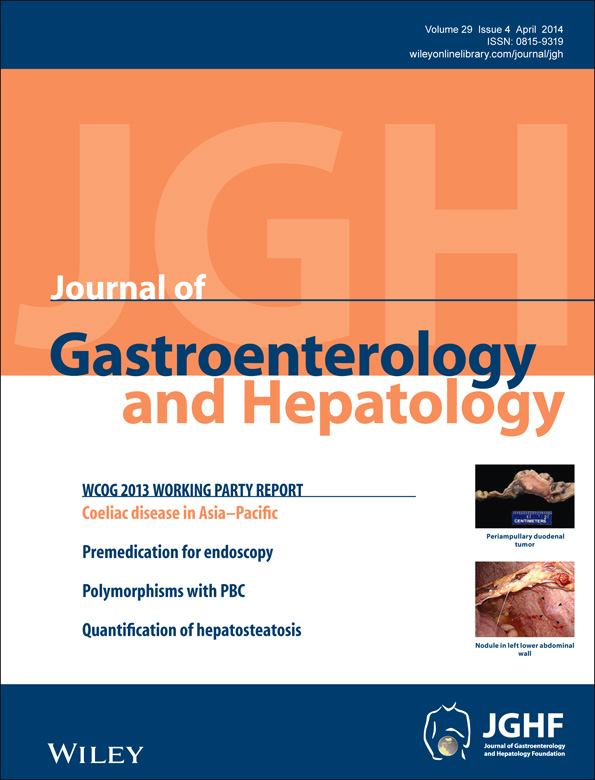Recurrence of gastroesophageal reflux disease correlated with a short dinner-to-bedtime interval
Abstract
Background and Aim
Gastroesophageal reflux disease (GERD) can be classified into erosive reflux disease (ERD) and nonerosive gastroesophageal reflux disease (NERD). We aimed to compare the recurrence rates of ERD and NERD and determine the risk factors related to the recurrence.
Methods
This prospective study comprised 337 consecutive adults who completed questionnaires on their GERD symptoms, height, weight, sleeping position, dinner time, and bedtime. During upper gastrointestinal endoscopy, the presence of a hiatal hernia and mucosal breaks in the low esophagus, esophageal length (the distance between the Z-line and the incisors), and the esophageal length-to-height ratio were recorded. Recurrence was diagnosed when the patient required additional proton pump inhibitor medication after initial recovery with 4–8 weeks of treatment.
Results
Recurrence was experienced by 47 (26.0%) of 181 GERD patients. The recurrence rate did not differ between the 48 ERD (27.1%) and 133 NERD (25.6%) patients (P = 0.849). Of the various factors studied, recurrence was found to be correlated with a dinner-to-bedtime interval of less than 3 h (P = 0.002), globus sensation (P = 0.031), and old age (P = 0.047). Logistic regression analysis revealed that a short interval between dinner and bedtime was the only factor significantly related to the recurrence (P = 0.002).
Conclusion
Both ERD and NERD patients who sleep within 3 h after eating have a higher risk of GERD recurrence. Our findings highlight the impact of a short dinner-to-bedtime interval on the recurrence of GERD (ClinicalTrials.gov ID: KCT0000134).




